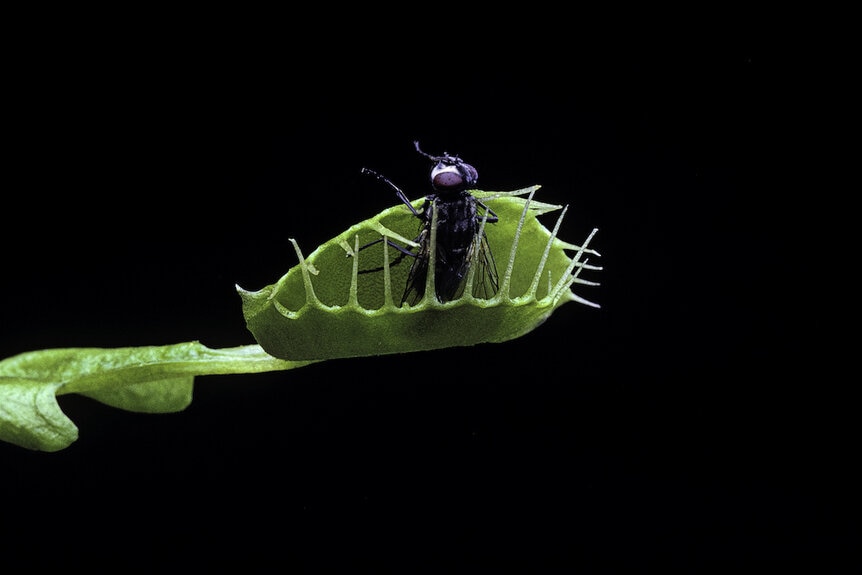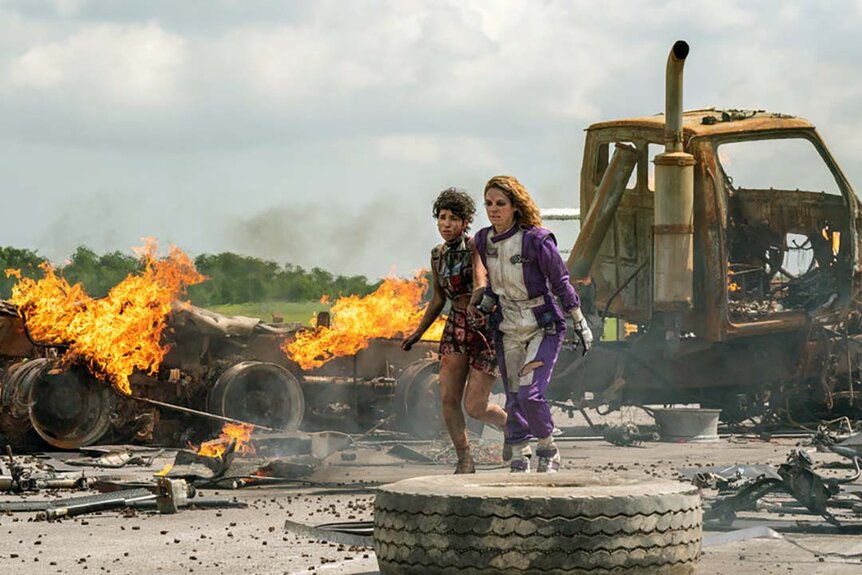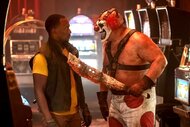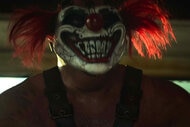Create a free profile to get unlimited access to exclusive videos, sweepstakes, and more!
Scientists Identify the 14 Most Likely Ways Humanity Will Wipe Itself Out
Is the end of the world in progress?
John Doe (Anthony Mackie) is a milkman/courier delivering packages across a desolate post-apocalyptic wasteland in Twisted Metal, streaming now on Peacock. It isn’t important how the world ended, only that it did, and that he has to survive in a world filled with colorful characters driving murder machines.
On a long enough time scale all things must end. The universal truth of every life, every civilization, even every species is that they all have an expiration date. Despite our immense success as a species, our continued survival is not guaranteed. In fact, we might be accidentally walking toward an evolutionary cliff without even realizing it. A recent study published in the Philosophical Transactions of the Royal Society B outlines 14 potential evolutionary traps that could spell the end of humanity.
Getting Humanity Caught in an Evolutionary Trap
Evolutionary traps are a well-known phenomenon among non-human animals. In simple terms, an evolutionary trap is anytime that an initially beneficial behavior becomes detrimental or even fatal. They are characterized by an organism’s preference for behavior that lowers their fitness and probability of survival.
RELATED: How Did the World End in Peacock’s Twisted Metal?
In general, evolutionary traps must have three characteristics. They must have evolved out of an initially adaptive process; they must show signs of an undesirable impact at a global level or a high probability of having that impact in the future; and they must have a trapping mechanism which makes them difficult to escape. A team of scientists took that phenomenon and extended it to humanity, searching for potential traps in the process of closing around us.
“Evolutionary traps are a well-known concept in the animal world. Just like many insects are attracted by light, an evolutionary reflex that can get them killed in the modern world, humankind is at risk of responding to new phenomena in harmful ways,” said Peter Søgaard Jørgensen, the study’s lead author, in a statement.
The study identified 14 potential evolutionary traps which might spell the end of our species if left unchecked. Worst. 12 of those traps are already in an advanced state and require swift action, according to scientists. Researchers note that humanity finds itself in a polycrisis, a time during which multiple large-scale problems are all acting at the same time, some of which reinforce one another.
Humanity Built Its Own Biological Booby Traps
Among the identified evolutionary traps are growth for the sake of growth, when systems or societies pursue growth at the cost of individual or overall well-being. There is also overshoot, when our consumption tips the balance of planetary systems, and contagion, wherein global connectivity increases the risk of pathogen exchange between otherwise disparate populations. Researchers also mentioned infrastructure lock-in, during which the sunk cost of existing infrastructure prevents the development of new, better, or necessary infrastructure. Other traps are more abstract, like social capital loss in which increased digitization leads to continued social splintering and echo chambers.
All of these present behaviors are the consequence of behaviors which have served us well for tens of thousands of years, but which are apparently detrimental in the world as we have made it. Simplifying agriculture to rely on only a handful of staple crops meant we were able to increase calorie production and support a rapidly growing population. But it also makes us more susceptible to disease and environmental changes. It means our agricultural system has only a few points of failure, something which could lead to disaster down the line. The same is true of fossil fuels which have undoubtedly ushered in the technological age but at the cost of human-caused climate change.
RELATED: Every 27 million years, almost everything on Earth goes extinct…but why?
Moreover, we’ve sunk a lot of infrastructure into pulling oil out of the ground, burning coal, and growing corn. Transitioning out of these systems is painful and we would prefer not to do it, but the consequences for inaction are severe. Beneficial behaviors which, when taken in concert, reinforce one another and are potentially fatal. That’s the trap.
“It’s time for humans to become aware of the new reality and to collectively move where we want to as a species. We have the capability to do that and are already seeing signs of such movements. Our creativity, and our power to innovate and collaborate equip us with the perfect tools to actively design our future. We can break out of dead ends and business-as-usual, but for that, we must nurture the capacity for collective human agency and design settings where it can flourish,” Jørgensen said.
With any luck Twisted Metal will remain a cautionary tale, not a predictive one. Catch it streaming now on Peacock.































